In Parliament: Community leaders launch report on improving the Pathway to Citizenship and new cross-party Citizenship Network
In Parliament: Community leaders launch report on improving the Pathway to Citizenship and new cross-party Citizenship Network
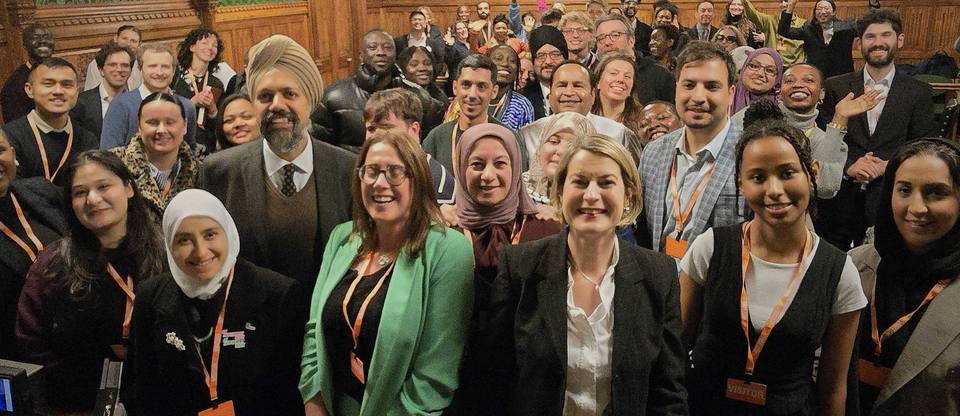
On 20 November, community leaders across Citizens UK chapters launched a new report 'From Rooted to Recognised: Unblocking the Pathway to Citizenship' in Parliament.
The report, which draws on the voices of 2,000 community leaders, underlines the realities faced by those on the pathway to UK citizenship. It highlights not just the struggles but the resilience and hope of people who have spent years living and working here and are rooted within their communities yet still face barriers to unlocking their potential and building permanent, fulfilling and settled lives in their communities.
The event was attended by 80 Citizens UK community leaders from 42 constituencies and two ministers. Co-chaired by Helen Hayes, MP for Dulwich and West Norwood, and Citizens UK leader Grace Akinyemi, it featured testimonies from community leaders, who shared their personal stories and the difficulties they and their families face while on the pathway to citizenship.
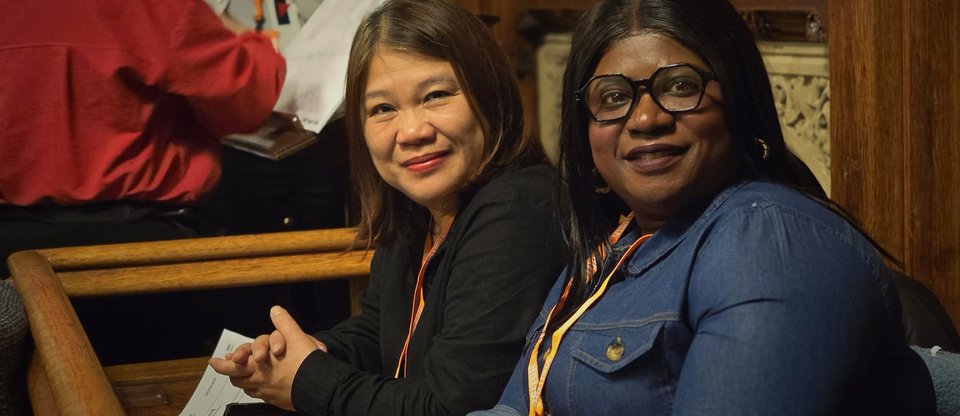
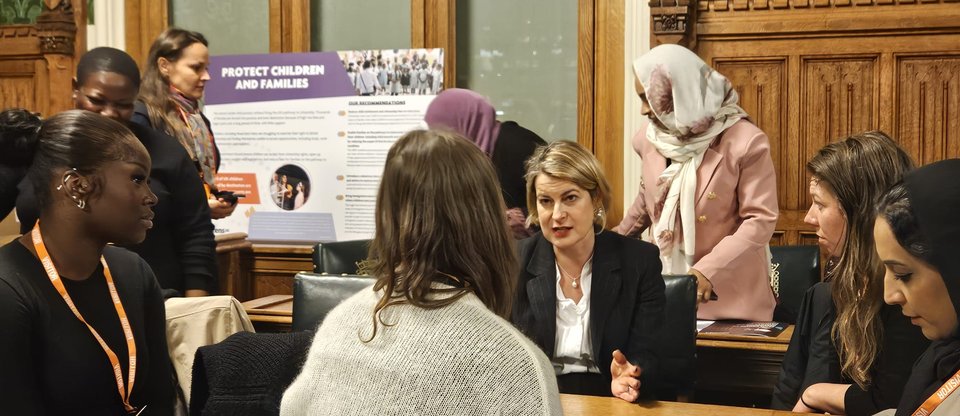
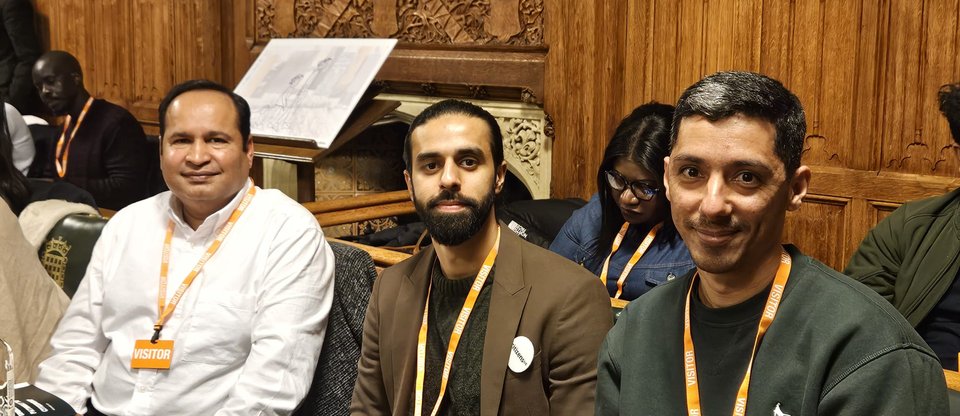
Report launch
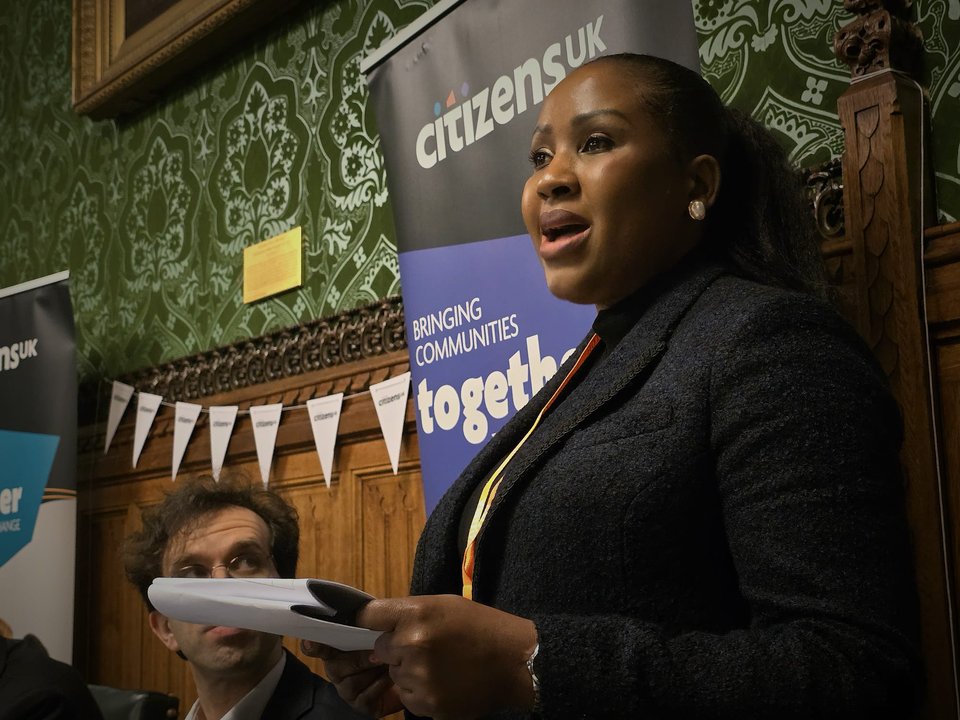
“I know what it is to be a child with no status, to see your parents struggle and to be told that the only home you know — the country I was born in - is not your home at all,” said Grace, co-chair of the event. Her words echoed the sentiments of many others present.
Our new report, Rooted to Recognised: Unblocking the Pathway to Citizenship, reveals that:
- 500,000+ people have lived in the UK for over five years but still lack settlement or citizenship.
- A family of four on the 10-year route to settlement faces £37,000 in application fees and over £73,000 when including health surcharges.
- 80,000 people are excluded from public funds despite living in the UK for 11 to 20 years.
These figures underline the financial and emotional strain on individuals. As Wintana, Citizens UK community leader, shared:
"I'm an 18-year-old Eritrean. As a care leaver and child, I experienced how hard and confusing the immigration system is. I was placed in a hotel with adults at 16 and had to navigate the system alone, which was terrifying. I believe every child in care should have their immigration status resolved before turning 18. Without status, there’s no education, no work, and no sense of belonging. I've seen others give up on their dreams because of this. I have not stopped thinking it can be made less painful and more fair."
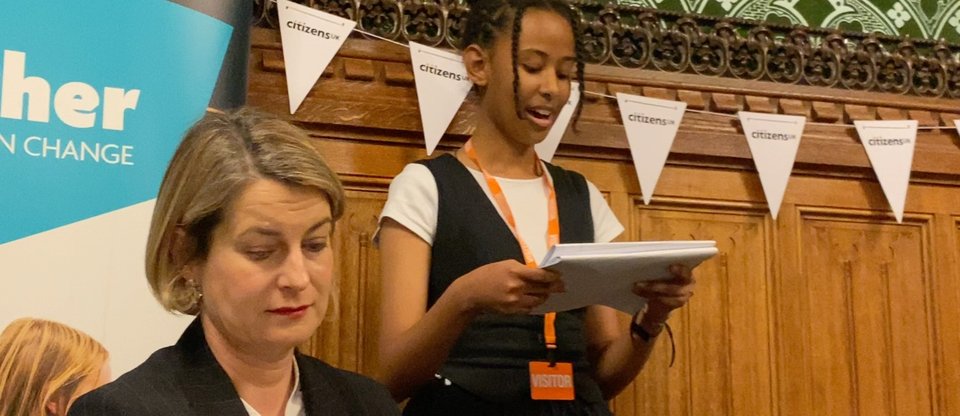
"I’m a mother of two. I have lived in the UK now for 12 years and I have been working and paying my taxes since I was 18 years of age, contributing to a welfare safety net that I cannot access myself, due to my ‘No Recourse to Public Funds’ status. Neither of my children can access child benefits. I’ve had to borrow money to pay for application fees, and I live in constant financial distress. The uncertainty and anxiety have affected our well-being, and I believe the pathway to citizenship needs to be fair and affordable, especially for children, so they can thrive in the country they call home." - Nori, Citizens UK community leader.
The report not only identifies the problems but also proposes three urgent policy recommendations to address the issues:
- Make the process of obtaining citizenship a guiding principle of the migration system, ensuring that people who have made the UK their home can finally be recognised.
- Protect children and families on the pathway to citizenship, ensuring that no child is excluded from opportunities due to their immigration status.
- Streamline the application system to reduce the backlogs and delays that currently keep individuals in prolonged uncertainty.
Citizenship Network
The launch of the report was followed by the official launch of the Citizenship Network, a cross-party parliamentary group committed to exploring solutions and acting on the report's recommendations. MPs from across the political spectrum pledged their support for the initiative, including signing a commitment to work directly with community leaders and support those facing challenges on the pathway to citizenship.
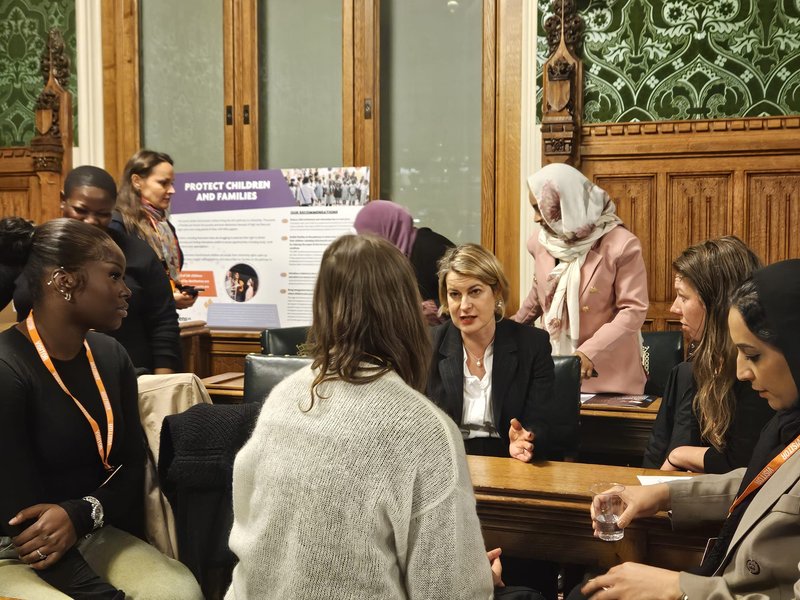
Helen Hayes MP, who has long been a champion of community-led change, called on her parliamentary colleagues to join the network. "This is about making sure that those who have put down roots in our communities are able to build a fulfilling, stable life without the fear of deportation or financial ruin," she said. “The Citizenship Network is an opportunity for us, as parliamentarians, to actively support those who need our help the most.”
The event ended with a moment of celebration as 10 MPs signed the pledge, committing to work together to solve the challenges outlined in the report.
Citizens UK is now calling on more MPs to join the network, ensuring that the voices of those most affected by the pathway to citizenship are heard and acted upon.
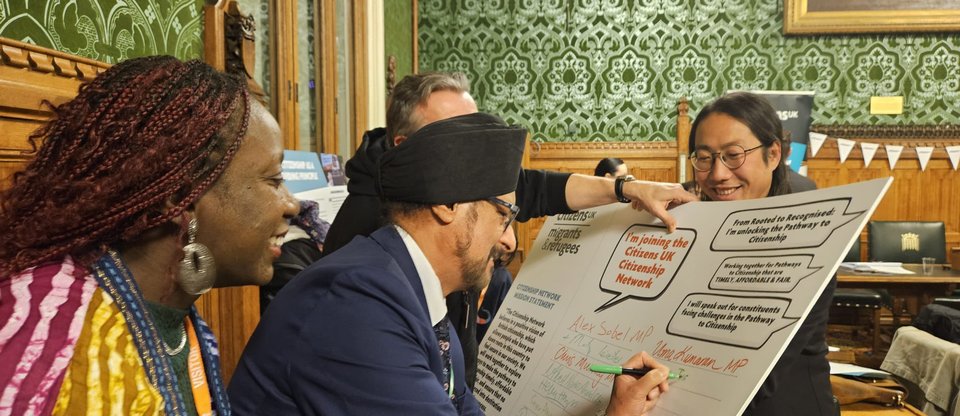
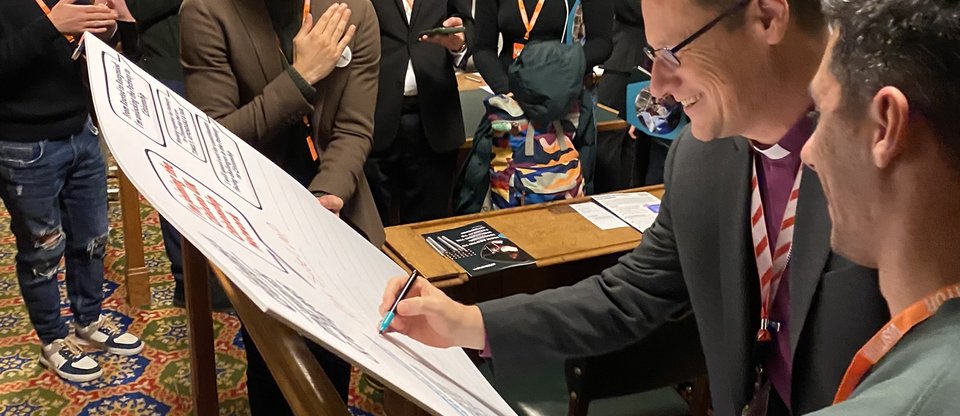
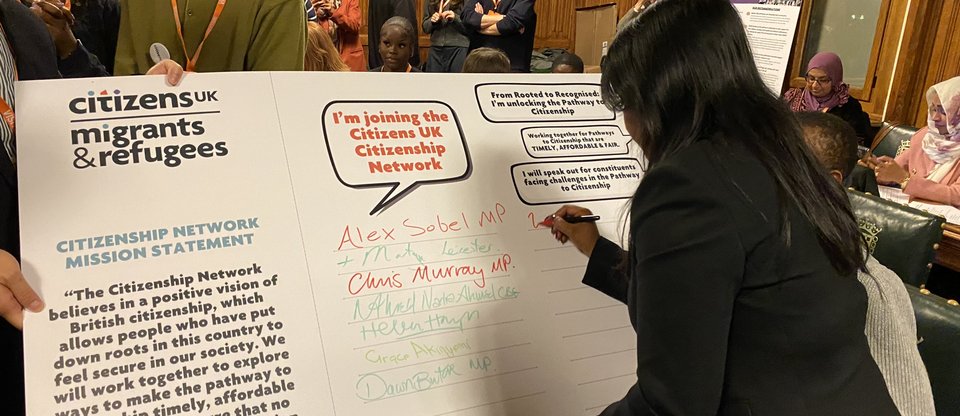
The urgent need for change is clear. We need to unlock the pathway to citizenship for people rooted in our communities, so they are able to build permanent, fulfilling and settled lives in their communities and recognise their contributions to the country.
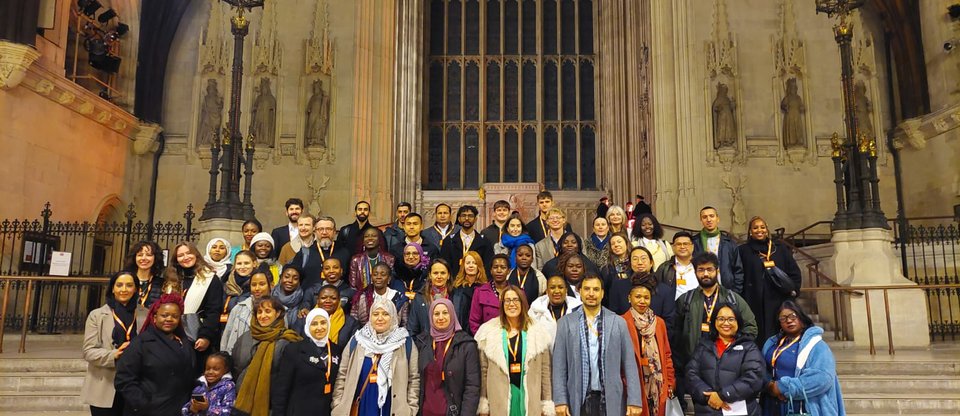
The Citizenship Network is a new cross-party parliamentary group, convened by Citizens UK. It brings parliamentarians together with migrant communities and other experts to explore solutions to the issues faced by people on the pathway to citizenship. Members of the Network agree to "speak up for constituents facing challenges on the pathway to citizenship and be part of the solution by exploring ways to make the pathway to citizenship timely, affordable and fair."
MPs can find out more and join the Citizenship Network by emailing citizenship.network@citizensuk.org
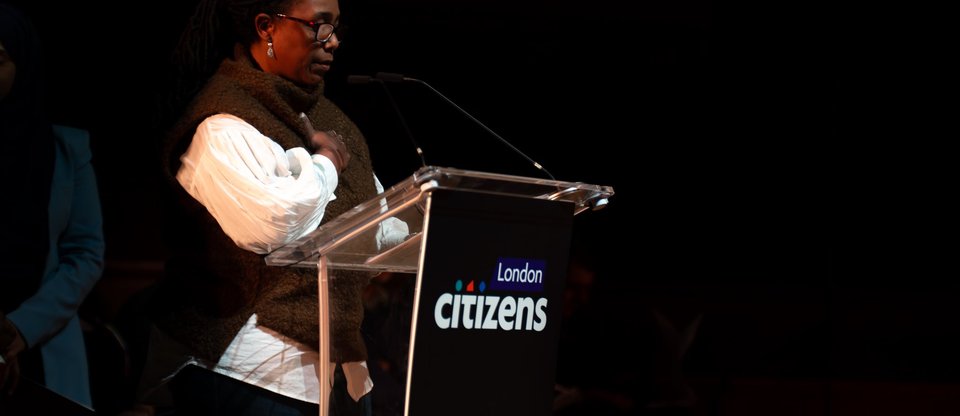
Our new report From Rooted to Recognised: Unblocking the Pathway to Citizenship details the problem of the UK settlement and citizenship system and sets the agenda for what should be done about it.
We make recommendations for initial reforms to the pathway to citizenship that can be made within this parliament as well as outlining principles for longer term comprehensive reform. These changes would enable people who are rooted in our communities to be fully recognised as British.




